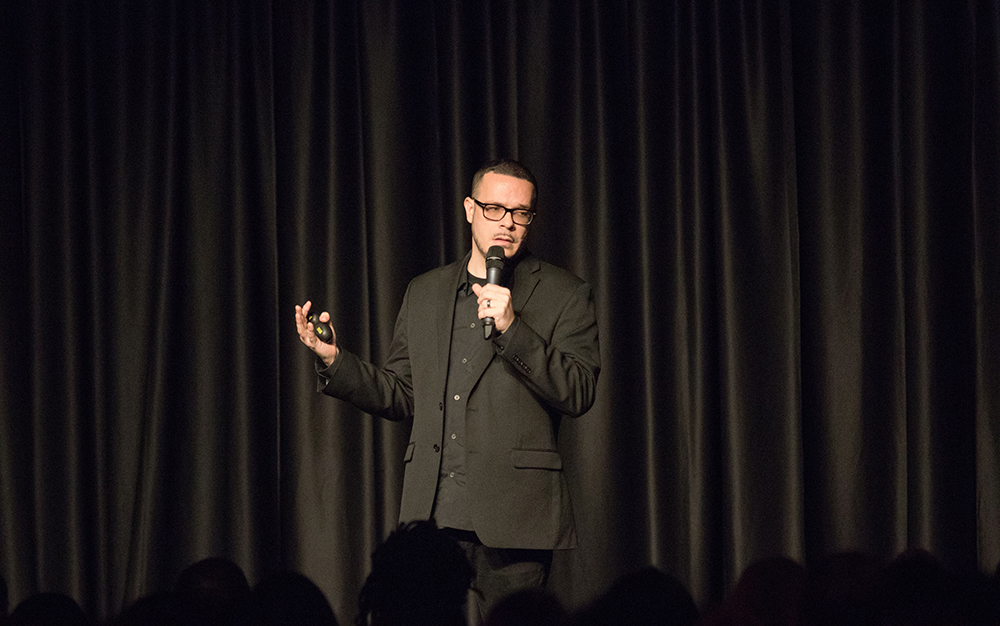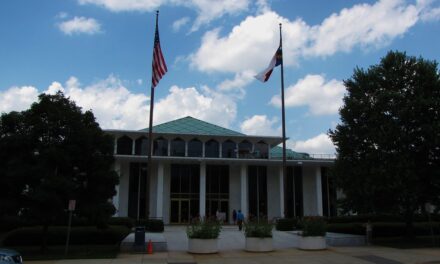Aditya Penumarti/Nubian Message
Shaun King, civil rights activist, speaks to students at the 2019 Lecture Series on Monday, Feb. 11 at Talley Student Union.
Jalen Rose | Staff Writer
“In these problematic times, I find myself latching to what I know. Relying on my experience.”
On Monday, Feb. 11, journalist and political activist Shaun King delivered a lecture entitled “Cultivating Community and Creating Social Justice for All” in Talley Student Union. King’s lecture was a part of the Department of Social Work’s 2019 Lecture Series.
King explained how he began his career in social activism targeting the injustice of police brutality.
He recalled the well-known murders of unarmed black citizens by the hands of local law enforcement. In each instance, King would visit the families of these citizens and say, “We’re going to get justice for them.”
“I kept promising these families that if people just see this, we’ll be able to find justice,” King said. “I deeply regret my naiveness at the time.”
King brought up these empty promises in order to explain the systemic problem our country faces.
“In 2014, 1,100 people were killed by police and zero percent of the police were held responsible,” King said. “What I learned about that zero percent was that the system was built to keep people from being held responsible and designed to ensure none of these families got justice.”
King used this systematic disparity to illustrate the state he believes our nation to be in. He also uses historiographer Leopold von Ranke to showcase the recorded fluctuation on the quality of humanity throughout time.
Ranke discovered that as the quality of our technology exponentially increased, the quality of humanity continued to fluctuate. There seemed to be no correlation between the improved technology and global tranquility.
“I believe we are currently in a deep dip in the quality of our nation’s humanity,” King said.
Given that fluctuations naturally oscillate between higher and lower values, King suggested that our nation’s quality of humanity is on the lower end of the spectrum. For King, our current social and political climate indicate that our quality of humanity is slowly decreasing; hence, the dip.
“The scary thing about this is it’s easy to get in the dip but difficult to get out of it,” King said.
Then the mood of King’s lecture switched, quickly changed from a tone of despair to a call-to-action.
In an attempt to alleviate the pressure he put on the audience, King said, “There are no dips in human history that have lasted forever.”
King assured the audience that the moral dip we find ourselves in will eventually come to an end, albeit it will take a considerable amount of effort.
“Most of us are experts in our pain, but amateurs at planning our solutions,” King said.
Even with the amount of experience King has in the world of social activism, he finds difficulty in the curation of practical solutions that benefit the oppressed party. He knows that this is primarily because of the way the system is set up.
“We have to begin seeing our worst problem as being out-organized,” King said.
King believes that the African-American minority has been subjected to unjust systems and policies that have been organized by the majority. Dismantling how the system works is what King says needs to be done for the black community to move forward and for the nation to collectively move out of the dip.
King said he hopes that his lecture not only inspires the audience, but teaches them how to move forward in these trying times.



